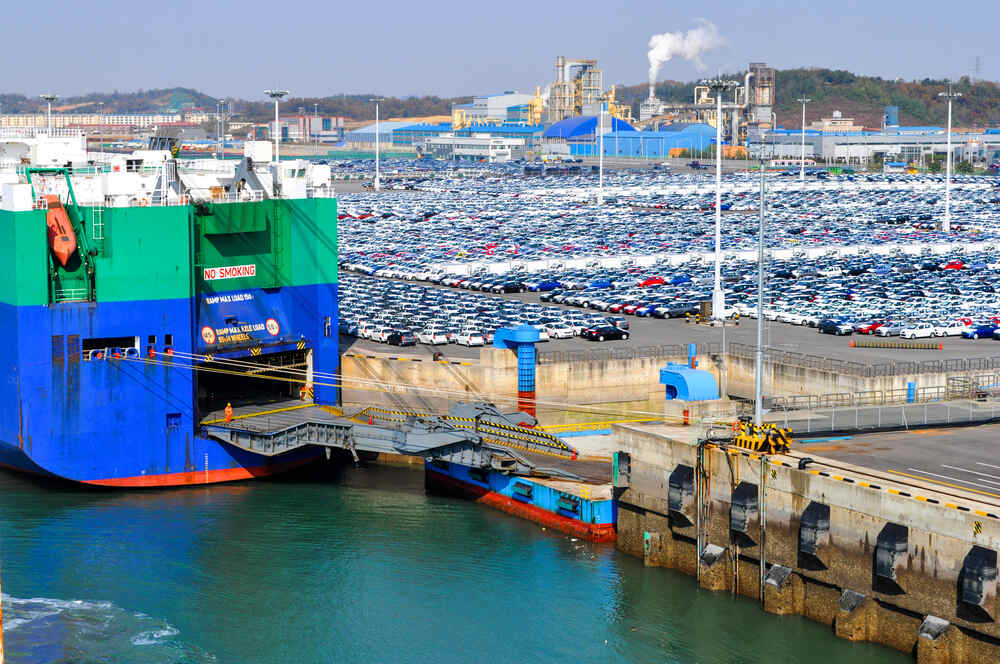International shipping plays a pivotal role in the global economy, facilitating the movement of goods across borders and connecting businesses and consumers worldwide. This complex and intricate system involves a network of vessels, ports, regulations, and logistics that work together to ensure the seamless flow of products from one corner of the globe to another.
The Global Network of Shipping
At the heart of international shipping is a vast network of vessels that traverse the world’s oceans, connecting major trade routes and linking economies. Container ships, bulk carriers, and oil tankers are among the various types of vessels that form the backbone of this intricate system. These ships carry a wide array of goods, including raw materials, finished products, and energy resources, contributing to the interdependence of nations in the global marketplace.
Visit for more information https://www.freightgetter.com/delivery-options-drop-off-locations
Key Players in International Shipping
Shipping companies, freight forwarders, and maritime carriers are the key players that facilitate the movement of goods across international waters. These entities manage fleets of vessels, negotiate contracts, and handle the logistics of transporting goods from the manufacturer to the end consumer. Shipping companies often collaborate with port authorities, customs officials, and other stakeholders to ensure a smooth and efficient process.
Ports as Critical Hubs
Ports serve as crucial nodes in the international shipping network. They act as gateways where goods are loaded and unloaded, undergoing various inspections and customs procedures. Major ports around the world, such as Singapore, Rotterdam, and Shanghai, are strategic hubs that handle vast volumes of cargo and contribute significantly to the efficiency of global trade.
Regulatory Framework and Compliance
International shipping operates within a complex regulatory framework governed by international maritime conventions and agreements. The International Maritime Organization (IMO) plays a central role in establishing and updating these regulations to ensure the safety, security, and environmental sustainability of shipping activities. Compliance with these regulations is mandatory for all vessels navigating international waters, and failure to adhere to them can result in penalties and restrictions.
Challenges and Innovations
Despite its critical role in global trade, international shipping faces various challenges. Piracy, geopolitical tensions, and natural disasters can disrupt shipping routes and impact the timely delivery of goods. Additionally, environmental concerns have led to increased scrutiny of the industry’s carbon footprint, prompting innovations such as cleaner fuels, improved vessel design, and sustainable practices.
Digitalization and Technology
The digital revolution has also transformed the landscape of international shipping. Advanced technologies, such as blockchain, artificial intelligence, and the Internet of Things (IoT), are being leveraged to enhance efficiency, traceability, and security in the shipping process. These technologies enable real-time tracking of cargo, streamline documentation processes, and reduce the risk of fraud and errors.
Environmental Sustainability
Amid growing concerns about climate change, the shipping industry is under pressure to adopt more sustainable practices. Efforts to reduce greenhouse gas emissions, improve fuel efficiency, and explore alternative fuels are gaining momentum. The industry is exploring the use of cleaner energy sources, such as liquefied natural gas (LNG) and hydrogen, to power vessels and minimize their environmental impact.
Conclusion
International shipping remains a cornerstone of the global economy, fostering trade and economic growth across borders. As the industry continues to evolve, it faces challenges and opportunities that require collaboration, innovation, and adherence to sustainability principles. Navigating the seas of international shipping requires a delicate balance between economic interests, regulatory compliance, and environmental responsibility to ensure a prosperous and interconnected future for nations around the world.
